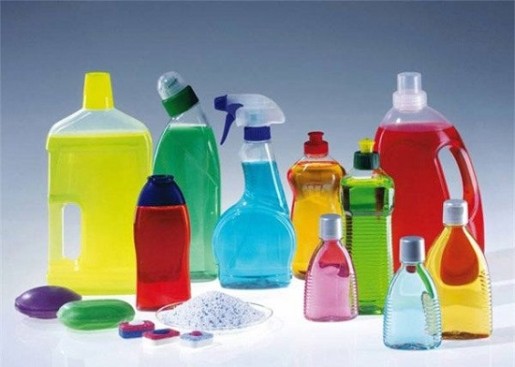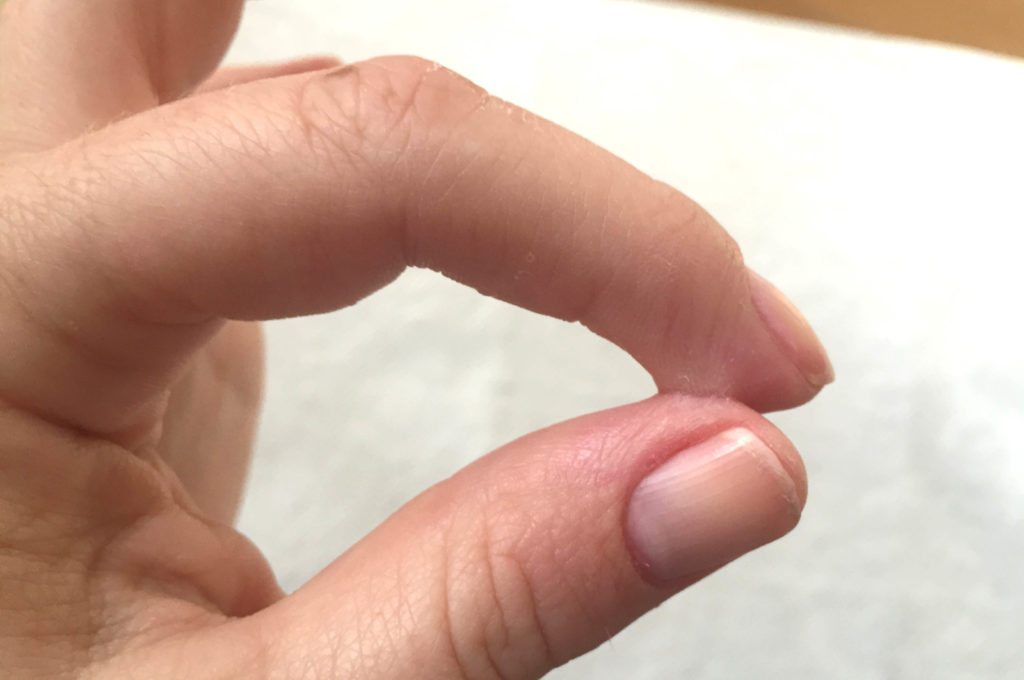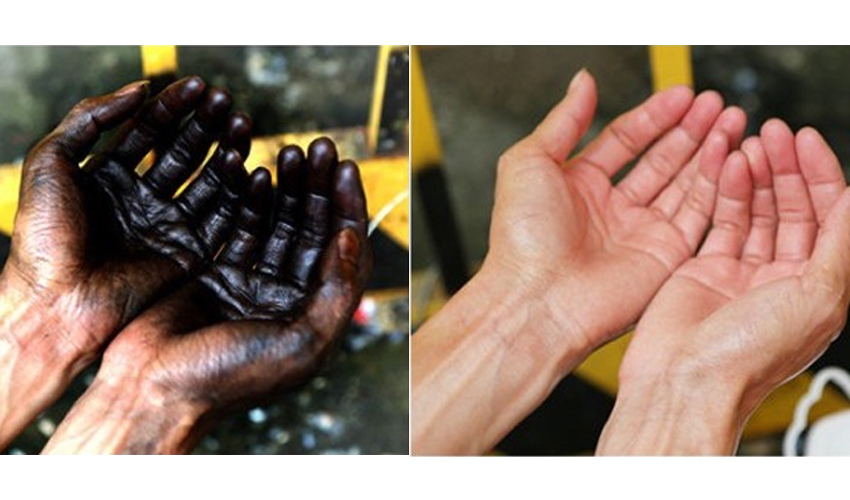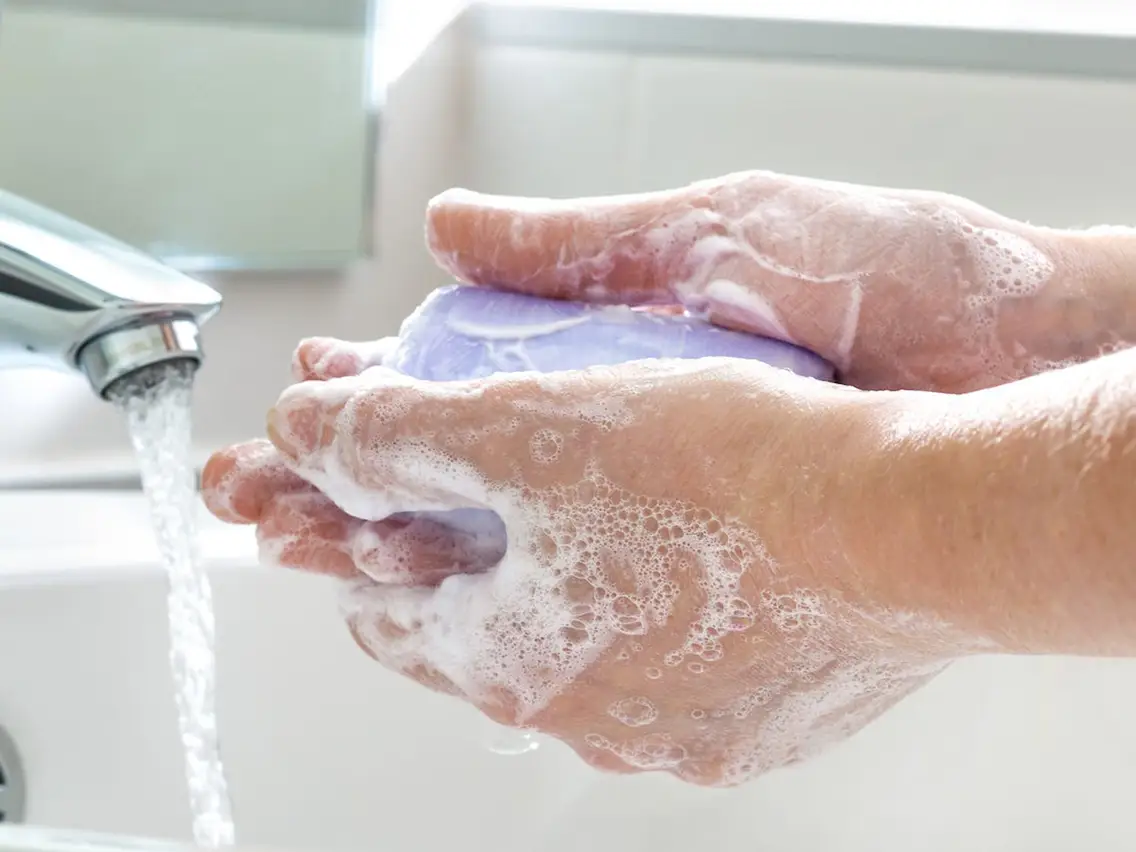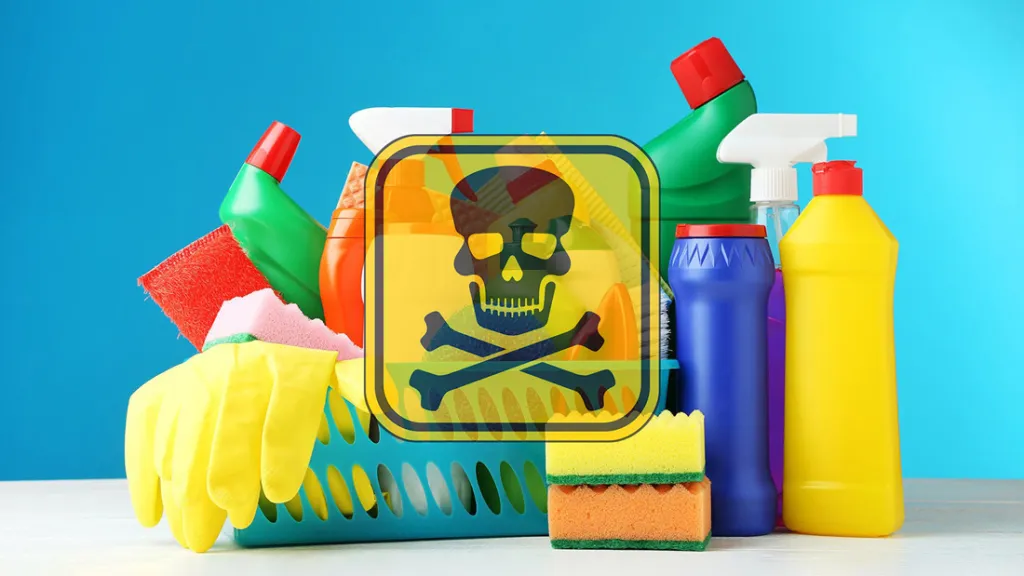Nowadays, cleaning agents are an indispensable part of our lives. The use of cleaning agents to clean living spaces and work environments is essential. They help us remove dirt, bacteria and stains on objects quickly and effectively. However, there are products that are very toxic and dangerous. If we use cleaning agents incorrectly, they can cause serious harm to health and the environment. Together with Qualitas DC, clarify the harmful effects of improper use of detergents in the article below.
Harmful effects of detergents
Harm to health
When exposed to cleaners, the chemicals contained in their ingredients can cause a number of health problems for humans and pets, including:
- Eyes: Cleaning agents can irritate the eyes, causing redness, itching, swelling, and watering. In severe cases, they can cause eye burns.
- Skin: Cleaning agents can irritate the skin, causing it to become red, itchy, dry, and flaky. In severe cases, they can cause skin burns.
- Inhalation: Cleaning agents can irritate the respiratory tract, causing coughing, difficulty breathing, sore throat and runny nose. In severe cases, they can cause pneumonia.
- Nervous system: Cleaning agents can damage the nervous system, causing dizziness, headache, nausea and vomiting. In severe cases, they can cause convulsions and coma.
- Liver: Cleaning agents can damage the liver, increasing liver enzymes and jaundice. In severe cases, they can cause liver failure.
- Kidneys: Cleaning agents can damage the kidneys, increasing creatinine and proteinuria. In severe cases, they can cause kidney failure.
Specifically, the harmful effects of some common cleaning agents on the market and commonly used as:
- Bleach – A corrosive product that can irritate the skin, eyes, nose, and throat. In some cases, direct contact can lead to dermatitis. Accidental ingestion can lead to damage to the esophagus, stomach irritation, and persistent nausea and vomiting.
- All-Purpose Cleaners – Depending on the ingredients used, all-purpose cleaners can irritate the skin, eyes, nose, and throat. They can be highly toxic to both humans and animals if swallowed.
- Detergent – Overexposure to laundry detergent can lead to skin irritation, asthma, depending on the type and duration of exposure, and is the cause of many accidental ingestion/ingestion poisonings.
- Antibacterial cleaners – Often containing quaternary ammonium or phenolic chemicals – can irritate your eyes, burn your skin and throat.
- Window/glass cleaner – May irritate eyes, nose and throat and if swallowed may result in drowsiness, unconsciousness or death.
- Toilet cleaner – Most products are very irritating to your eyes and skin and will burn your throat.
- Furniture Polish – Contains chemicals that can irritate your skin, eyes, throat, lungs, and windpipe and lead to nausea and vomiting if swallowed.
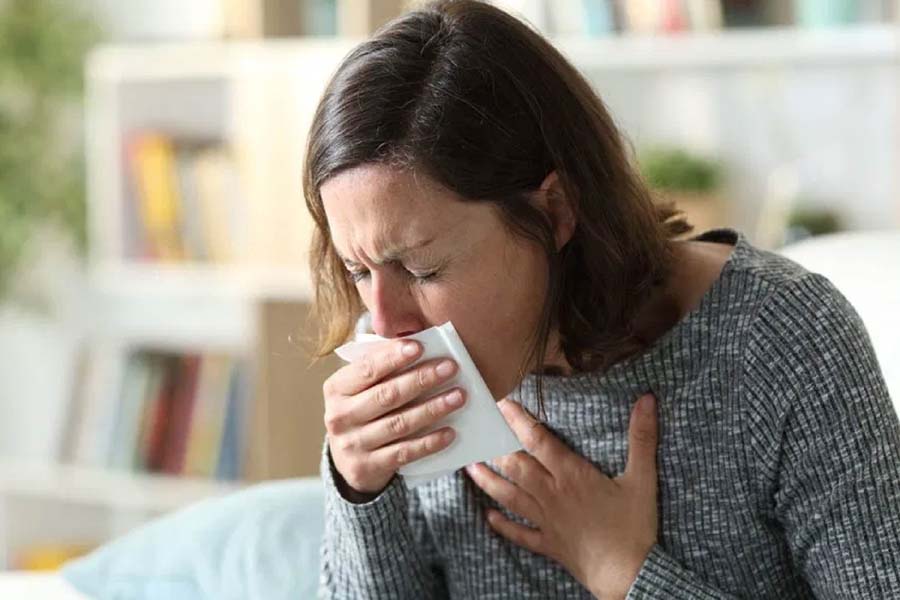
Harm to the environment
Cleaning agents can cause pollution when released into the environment. The effects on the environment can include:
- Water pollution – Thousands of chemicals from cleaning agents are washed into rivers and streams. Some do not decompose but persist in the environment and enter the food chain. When chemicals in detergents are released into the aquatic environment, they can kill aquatic animals and affect water quality.
- Air pollution – Volatile organic compounds (VOCs) in cleaning products can affect indoor air quality and add to outdoor smog. Plus, transportation leads to carbon emissions from trucks.
- Packaging waste – Many packages and containers are not made from recyclable materials. Packaging and empty bottles often end up in landfills. This causes environmental pollution and is difficult to handle.
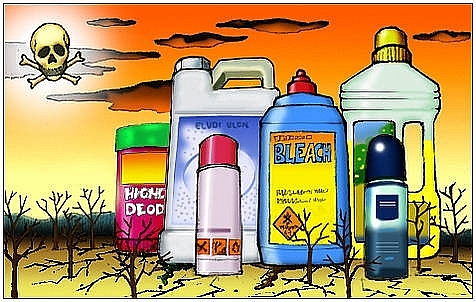
How to use cleaning agents safely?
To use cleaning agents safely, you need to keep a few things in mind:
- Read the user manual carefully before use. The instructions for use will give you information on how to use the cleaner safely, including dosage, usage time and storage.
- Use the correct amount of cleaning agents. Using too much detergent can be harmful to health.
- Avoid direct contact with cleaning agents. If you must come into direct contact with the cleaner, use gloves, a mask, and goggles.
- Do not mix cleaning agents together. Mixing detergents can create harmful chemicals.
- Store cleaning agents in the correct place.
In the work areas, companies and businesses also need to hang warning signs and instructions for using cleaning agents properly:
- Always train staff to be able to use the product properly, avoiding any hazardous exposure to hazardous cleaning chemicals.
- List all cleaning products located in the facility, including volume, storage location, potential hazards, and necessary precautions.
- Install safety signs to warn workers of potential hazards associated with the use of these cleaning products.
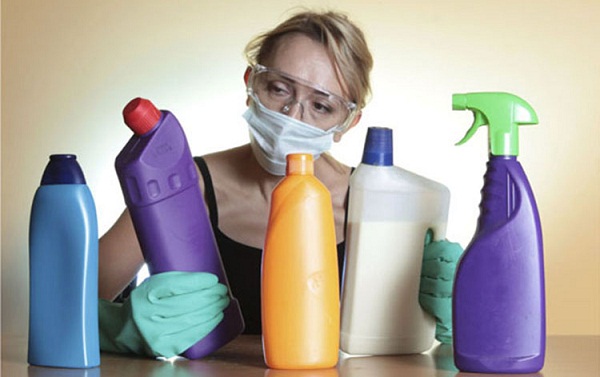
See also: The importance of industrial waste treatment
Some tips for using cleaning agents safely
- Use natural cleaners instead of chemical cleaners. Natural cleaners are made with ingredients derived from nature, such as vinegar, lemon, baking soda, and dishwashing liquid. Or you can use cleaning products containing ingredients of natural origin, biodegradable, etc. They are safe for your health and the environment.
- Use cleaning agents at the specified concentration and follow the manufacturer’s instructions for use. This will help reduce the concentration of harmful chemicals in the cleaning agents.
- Use a brush or towel to scrub the stain and use protective gear when necessary. This will help remove stains more effectively and reduce the risk of chemical exposure.
- Always clean the cleaned area with clean water. This will completely remove any remaining chemicals on the surface.
- Always ventilate when using cleaning agents. This will help reduce the risk of inhaling harmful chemicals.
- Keep out of reach of children and pets. Cleaning agents can be harmful to children and pets if they are swallowed or come into direct contact with their skin.
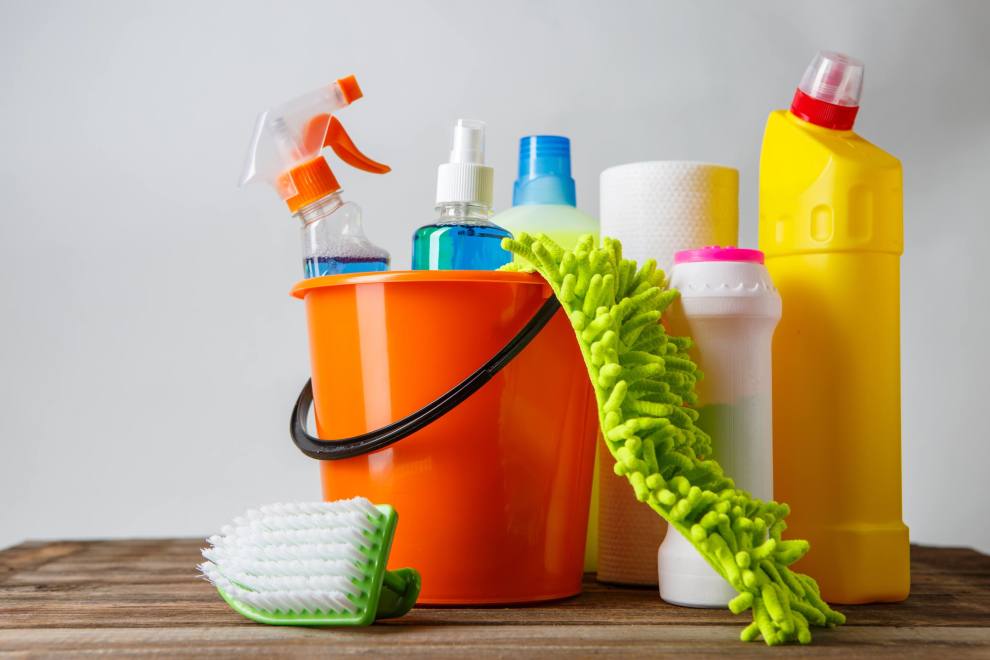
In short, the improper use of detergents can cause serious harm to health and the environment. To use cleaners safely, you need to keep a few things in mind that have been mentioned above. Good luck!
See also: 5 tips for safe industrial cleaning
See also: Harmful substances in cleaning agents

